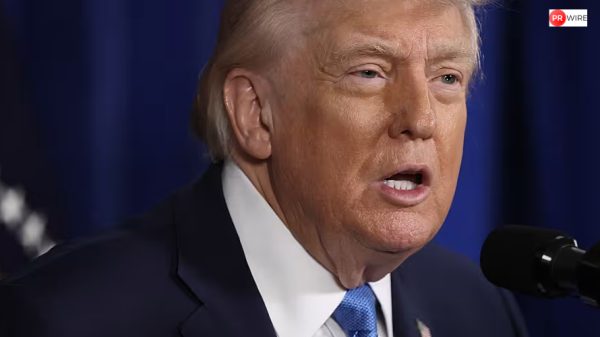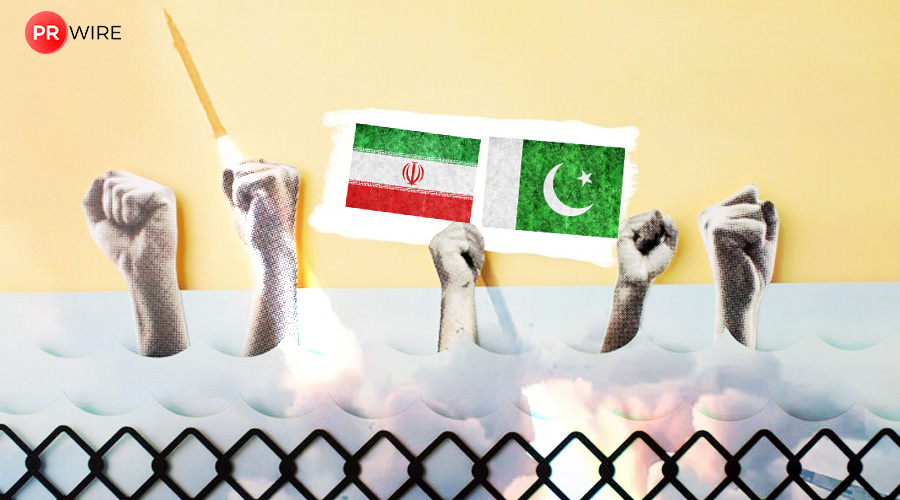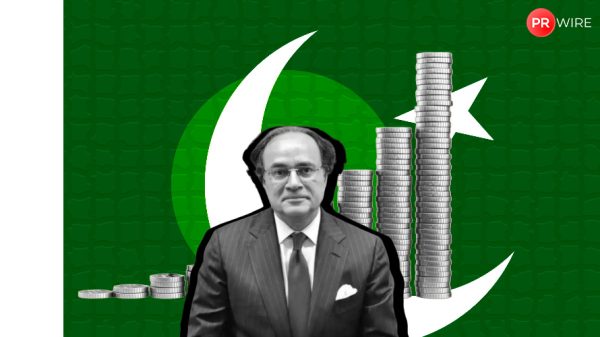The world’s only country to be born in the name of religion i.e., Pakistan (literally, land of the pure) has what it condescendingly calls ‘brotherly relations’ with two co-religious Islamic nations i.e., the Islamic Republic of Iran and the Islamic Emirate of Afghanistan.
It also has a 3,323 km long land border (Line-of-Control or the LoC) with a third, secular nation i.e., India, with whom it has had at least four official wars i.e., 1947-48, 1965, 1971, and 1999 (Kargil), besides openly supporting secessionist movements within its territory. Since independence, Pakistani citizenry has fatally been fed notions of a ‘cowardly baniya’ across the LOC, despite consistent defeat in each of the wars.
Cut to 2023-24, Pakistan’s territorial integrity has been attacked and bloodied, routinely. Ironically, the attacks don’t come from the traditional enemy in India but from the Islamic Emirate of Afghanistan which refuses to recognize the sanctity of its 2,640 km long border or the Durand Line.
Now, Pakistan was recently attacked by missiles fired from across the 909 km long Iran-Pakistan border, inhabited on both sides by the indefatigable Balouch tribes. Two days after that, Pakistan conducted military strikes inside Iran, claiming to have targeted Balouch militants.
The warring Balouch, like the equally irreconcilable Pathans (on either side of the Pakistan-Afghan Durand Line), refuse to accept their ‘secondment’ in the Pakistani narrative and therefore seek to carve out their own nation, be it Balouchistan or Pakhtoonistan. If it is the likes of Pakistan Tehrik-i-Taliban Pakistan (TTP), Tehrik-e-Jihad Pakistan (TJP), etc., for the Pathans, then it is the likes of Balochistan Liberation Army (BLA), Baluch Liberation Front (BLF), etc., for the Balouchis.
Pakistani Quagmire is One of Self-created Circumstances and Amorality
Recent times have been particularly rough for Pakistan as it is in the midst of an implosion, aided invaluably by the amorality and contradictions that beset its sovereign idea. If the genealogical ‘two-nation theory’ couldn’t bind the Bengalis to this bigoted and small-spirited conceptualization and ‘Bangladesh’ happened in 1971 – the Balouch and Pathans are seeking their own breakouts.
Then, concerted efforts to create and nurture ‘terror nurseries’ to harm the interests of those across the three borders, have turned into Frankensteinian monsters and biting back their creators i.e., Pakistan. Hillary Clinton had presciently warned Islamabad, “Snakes in your backyard won’t bite only neighbors”, but Islamabad had persisted with its nefarious activities and is now in the throes of what it ironically labels ‘terror attack’!
Even its coffers are almost dry, and Pakistan sustains itself on doles meted out with embarrassing conditionalities, which will further create deeper ‘debt traps’ (China Pakistan Economic Corridor or CPEC was once likened to a modern-day East India Company).
A further outcome of pandering to its central tenet of religiosity has been the toxic air of intolerance, illiberality, and wonton sectarianism.
Not only are minorities like Hindus, Christians, and Parsis persecuted as second-class citizens, but even the Shias, Ahmediyas, and other groupings like Hazaras are treated discriminatingly. Private sectarian militias like Sipah-e-Sahaba, Lashkar-e-Jhangvi, Jaish al-Adl, etc., are formed to protect (and attack) the sectarian ‘other’.
Enveloping this tinderbox of contradictions, disaffections, and desperations, is a farcical democracy (makeshift government put in place by the Pakistani ‘establishment’ or Military) with nuclear warheads to boot! It is fighting hard to keep its head above waters and cannot afford any more challenges or threats, than what it is already saddled with.
Iran Like Pakistan, is Fighting Its Own War for Survival and Legitimacy
Yet another country with its own back to the wall with myriad sanctions, sectarian and non-sectarian enemies, and commitments to regional militias and wars, is Iran. Tehran too can ill-afford any more on its plate, than what it already has to deal with, like Pakistan.
That is exactly, however, what two struggling sovereigns did to each other by compounding their miseries and firing missiles into each other’s territories. Could it be intentional? Were there tensions between the two nations? Were they working to the detriment of each other? Actually, not.
If anything, both had a common enemy that sought to break away from Islamabad and Tehran respectively i.e., Balouchis, that needed to be contained.
But both apparently fired at ostensible ‘terrorist bases’ without the stated intention to harm the other state, respectively. Clearly, the semantics and clarifications notwithstanding, Pakistan had retaliated to provocation from Iran’s first strike, as it had not conducted such a strike on Iranian soil, ever before. Soon both posited mealy-mouthed and insincere platitudes to deescalate matters, but the mutual strikes were undeniable.
Iranian Missile Attack on Pakistan – Whodunnit?
In all probability, someone on the Iranian side had spectacularly goofed up, intentionally or unintentionally. From all optics, deliberations, and purported positions as stated by Iran and Pakistan, there was simply no pressing reason for the governments of Iran (or Pakistan) to attack each other – on the contrary, from all recent bilateral meetings, joint military exercises and fight against Balouchi insurgents, there was much in common.
However, from a roguish individual act to even an accidental firing, anything is possible. After all a couple of years back, a BrahMos missile was accidentally fired from India into Mian Channu township in Pakistan – the missile had traveled 124 kilometers and the Indian Defense Ministry had acknowledged, “a technical malfunction led to the accidental firing of a missile.”
The immediate de-escalation measures initiated by both Iran and Pakistan, including a joint statement towards the same, are suggestive of no serious or devious sovereign intent.
It was most probably an accident or a case of individual complicity, that left the Pakistanis with no practical option but to retaliate in equal measure to retain their own notions of parity, in the eyes of its citizens. Then the official thawing ensued, earnestly.
Sectarian Concerns Could Enflame, Dangerously
But the ramifications for the tense sectarian (Shia-Sunni divide) or for the regional (Balouchi insurgency) passions, are immense. Ironically, the caretaker Prime Minister of Pakistan, Anwaar ul Haq Kakar is from Balochistan, albeit, of Pathan ethnicity. His Prime Ministership is widely believed to be at the behest of the Pakistani ‘establishment’ that has muzzled democracy and jailed the most popular leader, Imran Khan.
The beleaguered Shia populace has often punched above its weight with the likes of Muhammad Ali Jinnah, Iskander Mirza (the First President of Pakistan), General Musa Khan (Pakistani Army Chief during the 1965 war), General Yahya Khan (Pakistani Army Chief during 1971 war), Bhutto clan etc., but they have been forced to downplay their sectarian identity in the face of aggressive Sunni majoritarianism and assertions.
Iran, as the spiritual and political leader of global Shiite identity, assumes a unique role in sectarian dissonance, as the supporter of Shiite ‘voice’ from battlegrounds of Lebanon, Syria, Yemen, Bahrain to even Pakistan.
This sectarian divide within Pakistan or its fragile relations with Islamic countries like Iran and Afghanistan (with supposedly ‘brotherly relations’) are further suggestive of the weak foundations for the simplistic and amoral idea of the ‘two-nation theory’. It has been routinely exposed in 1971 to even now in 2024, this deliberate or accidental firing of Iranian missiles (or daily Afghan attacks), notwithstanding.
The article originally appeared on The Quint.




























